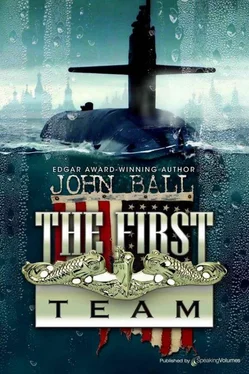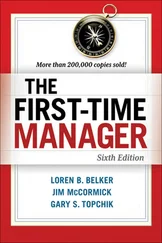Джон Болл - The First Team
Здесь есть возможность читать онлайн «Джон Болл - The First Team» весь текст электронной книги совершенно бесплатно (целиком полную версию без сокращений). В некоторых случаях можно слушать аудио, скачать через торрент в формате fb2 и присутствует краткое содержание. Год выпуска: 2013, Жанр: Триллер, на английском языке. Описание произведения, (предисловие) а так же отзывы посетителей доступны на портале библиотеки ЛибКат.
- Название:The First Team
- Автор:
- Жанр:
- Год:2013
- ISBN:нет данных
- Рейтинг книги:5 / 5. Голосов: 1
-
Избранное:Добавить в избранное
- Отзывы:
-
Ваша оценка:
- 100
- 1
- 2
- 3
- 4
- 5
The First Team: краткое содержание, описание и аннотация
Предлагаем к чтению аннотацию, описание, краткое содержание или предисловие (зависит от того, что написал сам автор книги «The First Team»). Если вы не нашли необходимую информацию о книге — напишите в комментариях, мы постараемся отыскать её.
Student protesters are being slaughtered in the Midwest.
The Jewish pogroms have begun.
You are now living in Soviet — occupied America!
One nuclear submarine and a handful of determined patriots against the combined might of Russia and Soviet-occupied America… The Most Explosive and Gripping “What If” Novel of Our Time!
First published January 1971
The First Team — читать онлайн бесплатно полную книгу (весь текст) целиком
Ниже представлен текст книги, разбитый по страницам. Система сохранения места последней прочитанной страницы, позволяет с удобством читать онлайн бесплатно книгу «The First Team», без необходимости каждый раз заново искать на чём Вы остановились. Поставьте закладку, и сможете в любой момент перейти на страницу, на которой закончили чтение.
Интервал:
Закладка:
Not long after the first light of the morning had thrown its blushes into the sky, a light aircraft sat down on the concealed landing strip that served the headquarters of Thomas Jefferson. The pilot paused just long enough to allow three people to deplane, then he was off again at very low altitude, skimming over the hills on what could have been a hunting reconnaissance or a rancher looking for strays from his herd.
Some twenty minutes after that Senator Solomon Fitzhugh was escorted into the reception foyer, such as it was, of the Thomas Jefferson headquarters. The facility had not been designed to receive many visitors, and minimum attention had been given to the usual amenities. Nevertheless Fitzhugh looked about him and took it all in.
Mrs. Smith came out to receive him. “Good morning, senator,” she greeted. “I’m very sorry that it was necessary for you to get up so early.”
“That’s quite all right,” he answered her gravely. “I am by nature an early riser.”
She sat down and faced him informally. “Senator, I believe that it has been made clear to you that this facility, and everything that goes on here, is supersecret in the strictest sense of the term.”
The senator nodded. “It has.”
“And as an American patriot you have agreed that under no circumstances will you reveal anything whatever about its existence until such time as you have been given specific clearance, from this headquarters, to do so.”
Again Fitzhugh nodded. “I have assumed that obligation, and I am grateful that at last someone describes me as a patriot.”
“Very well, senator, then I have something to show you before anything else. We are not much given to ceremonials here, we are too heavily engaged in other matters, but we do have something. Please come with me.” She opened a door and passed through.
Senator Fitzhugh rose and fell in behind his guide. When he had passed through the doorway he found himself in a simple room with no furniture whatsoever except for a single American flag standing in one corner. On the wall there were some pictures. Some fifty people, men and women, looked back at him from their portraits, each with a name posted underneath. He stopped when he saw the face of his son and read the name gary fitzhughfollowed by the dates of his short life.
“The man who directs our whole operation ordered this,” Mrs. Smith said. “We all come in here every little while to look and to remember. The President knows of it too; when this is all over a suitable memorial is going to be built in Washington.”
Despite himself Fitzhugh felt a growing lump in his throat. He looked long at the features of his dead son and then at the picture of the slender, quiet-appearing brunette which was hung next. He read the name and then looked at his guide. “She was your daughter, I believe you said.”
Mrs. Smith nodded. “Yes, senator, my only child. I cannot have anymore.”
The senator bowed his head. “I am very sorry,” he said.
“And I also, senator. But they did not die in vain. You will learn more about that very shortly.”
“I understand that I may be here quite some time.”
“Yes, but perhaps not as long as you might expect. Things are rapidly coming to a head.”
She opened another door and, indicating that he should follow, led him down a lengthy corridor which penetrated deep into the underground complex. Then she paused and looked into the conference room. “This is where the First Team meets,” she told him. “It is equipped with very advanced and highly protected communications facilities and many other features. It is much superior to both NORAD and the underground SAC headquarters. One major difference is that there are no press tours.”
“I can well understand that.”
“Good. Please sit down and you will be served some breakfast.” The tribute to his son, along with the others, had moved Solomon Fitzhzugh, and he had something to say. “Mrs. Smith, I am very keenly aware that all of this was built without the knowledge or consent of the Congress, but I can see why it had to be kept very secret.”
He drew an encouraging response to that. “Senator, I don’t question the integrity of anyone in Congress, but your colleagues in the Senate and the House represent a great many different shades of opinion; there are many of them who we would not trust to be here now.”
A door at the end of the room opened and Admiral Haymarket came in.
For a second or two Fitzhugh did not react; then he began to stare in almost stricken amazement. The admiral came toward him. “Good morning, senator,” he said. “I regard this as a much happier occasion than our last meeting.”
Fitzhugh took hold of the back of a chair and tried to clear his head of disbelief. “But I thought you dead and buried!”
The admiral nodded. “We went to considerable trouble to create that impression.”
Fitzhugh’s mind whirled and a desperate hope came to him. “My son?”
The admiral closed his eyes for a second and shook his head. “Sit down, Senator Fitzhugh, and let me have your breakfast brought in. We have eggs ready the way that you like them. This, at least, we can do for you.”
“I… I am astounded,” Fitzhugh said.
“I can appreciate that,” the admiral said clearly. “I assumed command of this operation, senator, on the direct orders of the President. I have the documents here if you wish to see them.” Fitzhugh was still stunned. “That… won’t be necessary.” “Good. Here is your ration, I believe.” He waited while the senator’s breakfast was set before him. Then he sat down easily and rested an arm across the back of the chair. “While you’re eating, I have some information for you. Our enemies, and I believe you recognize them as such now, have been making fun of our diplomacy for years and ridiculing our genuine peace efforts. But when we get tough, they understand perfectly. You remember Kennedy’s actions during the Cuban missile crisis.”
“Yes.” Fitzhugh was somewhat uncomfortable, but he ate his eggs and listened.
“Well, we got tough yesterday. We closed in on their murder team that killed your son and the other students. Forgive my referring to it, but I think you’d want to know. We disposed of them.” “You mean that…”
The admiral nodded briskly. “Yes, senator. Included in the group were two professional torturers and a well-known assassin. He was personally responsible…”
The senator shut his eyes for a moment.
“They won’t do it anymore.”
The senator picked up a glass of orange juice in a hand that shook a little. “Thank you for telling me.”
“Now, senator, another matter. In a major operation, to which we gave maximum attention for many weeks and in which many people risked their lives in very hazardous assignments, we arranged for the escape of one of our most potent FBM’s — Fleet Ballistic Missile submarine, that is.”
“I know of this.”
“Of course. Very recently the enemy boasted to one of our people that the submarine had been sunk. Our best guess is that there is a forty per cent chance that this may be so, but we aren’t sure.”
“Can’t you find out?”
“Yes, but that would require her to send out a signal and thereby expose herself to additional risk. If we transmit to her and request a reply, the enemy will know and will be listening too.”
“I see.”
“Therefore we may be playing with a bust hand; we don’t know if our hole card has been stolen or not.”
“There’s no time that the submarine is scheduled to report in?” The admiral shook his head. “Her captain is under direct orders not to transmit any signal whatsoever unless directed, or under circumstances that don’t pertain here.”
Читать дальшеИнтервал:
Закладка:
Похожие книги на «The First Team»
Представляем Вашему вниманию похожие книги на «The First Team» списком для выбора. Мы отобрали схожую по названию и смыслу литературу в надежде предоставить читателям больше вариантов отыскать новые, интересные, ещё непрочитанные произведения.
Обсуждение, отзывы о книге «The First Team» и просто собственные мнения читателей. Оставьте ваши комментарии, напишите, что Вы думаете о произведении, его смысле или главных героях. Укажите что конкретно понравилось, а что нет, и почему Вы так считаете.












